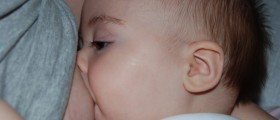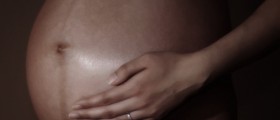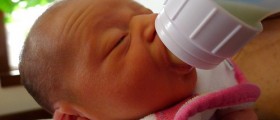
Breastfeeding is good for both, mothers and babies. The fact that breastfeeding is healthy for babies is familiar, but the positive influence it has on mothers is rather unknown. Yes, breastfeeding provides many short and long-term health benefits.
Physiologic Effects of Breastfeeding
Oxytocin is a hormone with two excellent functions. Apart from signaling the breast to release the milk, it simultaneously produces contractions in the uterus, which further prevents postnatal hemorrhage and promotes the return of the uterus to a state before pregnancy. Bottle-feeding mothers receive synthetic oxytocin at birth intravenously, but it is all they get. From that point on, they are on their own.
Bottle-feeding mothers get their periods back in about 6-8 weeks, while breastfeeding mothers may not get it back in several months. This is very important for the preservation of iron in the body and for the decrease of risk of iron-deficiency anemia. The longer the mother keeps her periods at bay, the stronger this effect is.
LAM or lactational amenorrhea method is a natural contraceptive method in the first six months after giving birth and it ensures the physical recovery of the mother.
Long-Term Benefits of Breastfeeding
Breastfeeding has numerous long-term benefits, such as optimal metabolic profiles, reduced risk of various cancers, and psychological benefits.
Production of milk requires the use of about 200-500 calories a day, which is equal to swimming 30 laps in a pool, or an hour of driving a bicycle uphill. This will give a certain advantage to breastfeeding mothers when losing weight is in question. In addition, the production of milk lowers the risk of diabetes. Also, it may result in a lower risk of heart problems, which is one the leading causes of death in women. The production of milk can also reduce the risk of osteoporosis.
Numerous studies have shown that bottle-feeding mothers have a higher risk of reproductive cancers, such as ovarian and uterine cancers. The most probable cause of this is the repeated ovulatory cycles and exposure to higher levels of estrogen from not breastfeeding. Other studies have shown that breastfeeding from 6-24 may reduce the risk of breast cancer by 11 to 25 percent. Breastfeeding will decrease risk factors for female cancers, heart attacks, and osteoporosis, without any significant health risks.
Psychological Issues for Breastfeeding Mothers
Breastfeeding is a matter of choice. However, there is more to it than simply the provision of optimal nutrition and protection from disease. It provides a unique bond between mother and child. And, yes, it is good for a mother, both physically and emotionally.
As said, it is a personal choice, but if saying breastfeeding is good, you are simply telling the truth.

















Your thoughts on this
Loading...